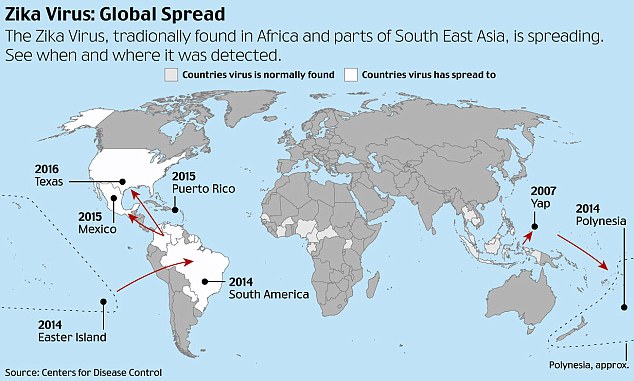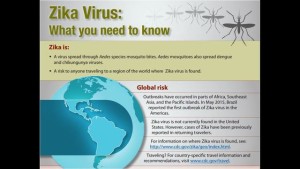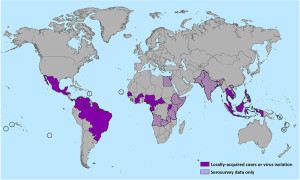
The mosquito-borne Zika virus, which has harmed thousands of babies born in Brazil, will likely spread to all but two countries in North, Central and South America, the World Health Organization warns.

Meanwhile, organizers of the Summer Olympics 2016 in Brazil said they’ll be on high alert to prevent Zika transmission.
According to the Associated Press, the committee plans daily inspections of the Olympic and Paralympic sites to seek out stagnant waters where Zika-spreading mosquitoes could breed. The games are scheduled for Aug. 5-21.
“Rio 2016 will continue to monitor the issue closely and follow guidance from the Brazilian Ministry of Health,” the committee said in a statement.

Preventing mosquitoes from breeding, and protecting yourself from mosquito bites, is the best protection, the WHO said.
The situation has led the U.S. Centers for Disease Control and Prevention to expand a recent travel advisory. Pregnant women are warned to avoid trips to Bolivia, Brazil, Cape Verde, Colombia, Ecuador, El Salvador, French Guiana, Guadeloupe, Guatemala, Guyana, Haiti, Honduras, Martinique, Mexico, Panama, Paraguay, Saint Martin, Suriname, Samoa, Venezuela and Puerto Rico. The agency also recommended screening for women who have recently traveled to these places while pregnant.
By Robert Preidt, HealthDay Reporter, U.S. News & World Report, SouthFloridaReporter.com, Jan.26, 2016
[/vc_message]











